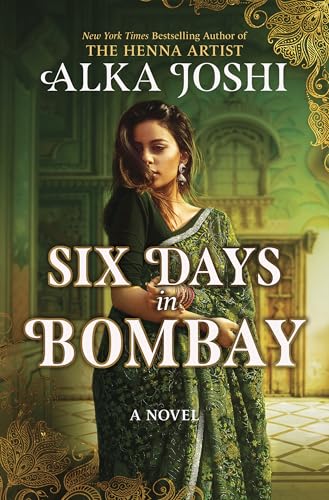 Alka Joshi has this knack for creating memorable narratives. This novel, loosely based on the story of the artist, Amrita Sher-Gil, a celebrated female painter of the early 20th century, follows Sona, a nurse in a hospital in Bombay. When Sona meets the famous painter, Mira Novak, the fictionalized character drawn from the inspiration of Sher-Gil, Sona finds herself sent out on her own journey of self discovery that leads her out of India on a trek across some of the most famous and culturally rich cities in Europe.
Alka Joshi has this knack for creating memorable narratives. This novel, loosely based on the story of the artist, Amrita Sher-Gil, a celebrated female painter of the early 20th century, follows Sona, a nurse in a hospital in Bombay. When Sona meets the famous painter, Mira Novak, the fictionalized character drawn from the inspiration of Sher-Gil, Sona finds herself sent out on her own journey of self discovery that leads her out of India on a trek across some of the most famous and culturally rich cities in Europe.
When we first meet Sona, she’s a smart and skilled nurse, but she’s naive in the ways of the world. She sees injustice but doesn’t know how to find her voice in a way to effectively combat it. When Mira Novak is admitted to the hospital following a miscarriage, Sona is drawn to her fierce independence and worldly experience. She finds Novak compelling and inspiring in ways she can’t quite understand while simultaneously feeling scandalized by someone who is the antithesis of all she’s been taught as being feminine. Despite her prognosis seeming good at first, Mira takes a turn for the worse and dies under strange and fairly mysterious circumstances. Sona, shouldering the blame for the death of her friend, finds herself jobless and in the possession of four of Mira’s paintings that are to be delivered to specific individuals in different locations across Europe. She accompanies a long-time patient, Dr. Stoddard, one of the few honorable people to exist within the walls of the hospital, back to Europe as his personal nurse. Once they have arrived, she embarks upon her own solo journey to deliver her works of art and explore the mysteries of her own past.
As I’ve come to expect from a Joshi novel, the writing is superb. She introduces the setting with deftness, drawing us into her world with precisely crafted imagery. She does try to explore a lot with this novel, especially considering the setting within colonial India. We wade through all these issues of race, class structure, and the gender politics of a highly patriarchal society in which the expertise and knowledge of a woman is so undervalued as to be given no weight at all. Sona and her mother, having been abandoned years prior by Sona’s English father, experience the crushing weight of poverty. Through her friends and colleagues, we see issues of domestic abuse and racial discrimination. Prepare to be infuriated by the way women are treated in this novel, even by other women. I’d get on a plane right now and travel to India just to claw Rebecca’s eyes out if I could (you know, if she wasn’t just a fictional horrible person). The most infuriating aspect of this, however, is the absolute failure of 1930’s medicine as it relates to the female body.
Thankfully, there are good people here that keep us holding onto hope that things will work out. Through her trials, Sona grows in her confidence and power, realizing that perhaps she and Mira aren’t so dissimilar after all. While one was failed by widespread systems of oppression, one just might be able to summon the courage and fortitude to overcome the obstacles she faces, driven by the admiration of her ill-fated friend.
This certainly wasn’t my favorite Joshi novel, because I feel like maybe she tried to throw too much into one standalone novel which made it feel a bit cluttered. I was also a bit disappointed with some aspects of the ending, but I want to avoid spoilers so I won’t go into that in too much detail. But, overall, it’s a very compelling story with strong characters and beautiful writing. The audiobook is expertly narrated by Sneha Mathan who is no stranger to the world of Alka Joshi, as she also did narration on the Jaipur trilogy. You can’t go wrong with any of these audios, as they are absolutely superb. I give this one a 3.5 for story rounded up to a 4 for the quality of the narration.
Published April 15, 2025 by Harlequin Audio. ISBN 9780778368533. Run time 12 hrs, 24 mins. Narrated by Sneha Mathan.

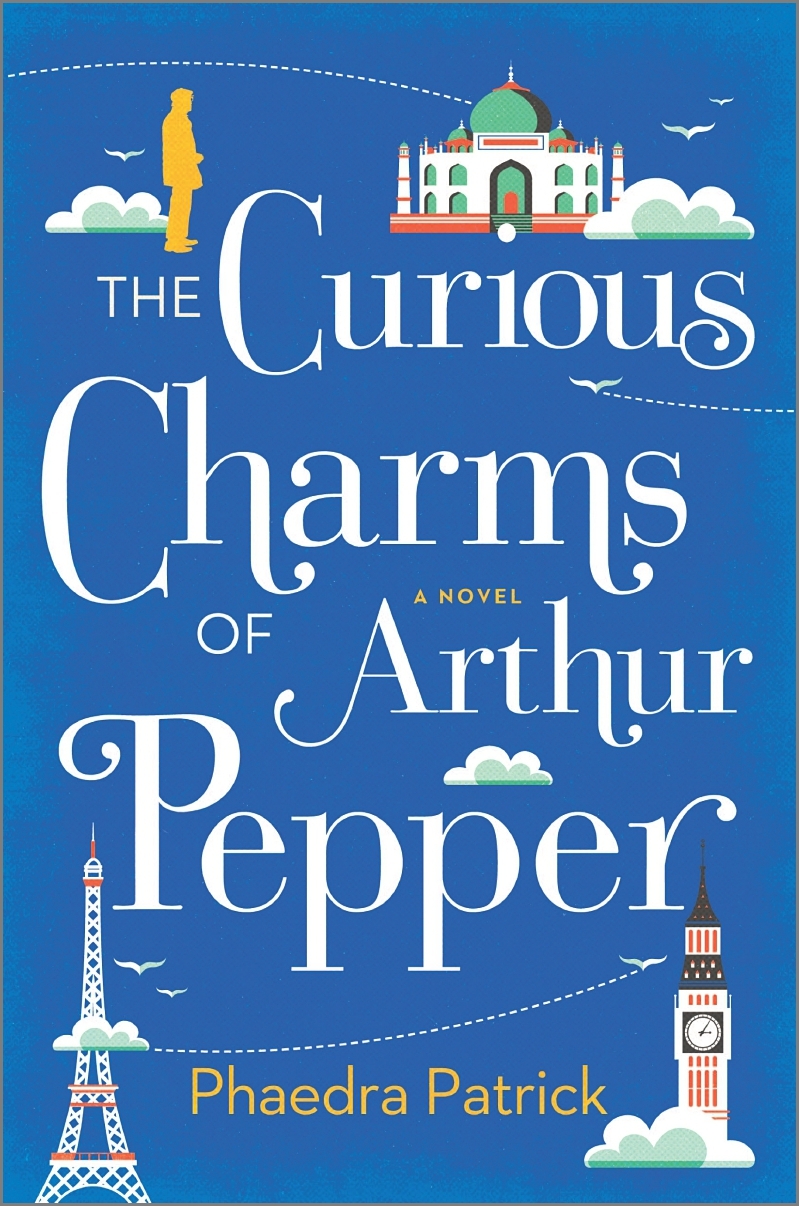 Arthur Pepper, aged 69, is at a pivotal time in life. Recently widowed, he wakes every morning wanting little more than to slog through his daily routine with little contact with the outside world. He wakes at the same time, wears the same clothes, and cares for his only companion, Frederica the fern. Oh, and he attempts to avoid the well-meaning also-widowed neighbor who has adopted him as her current “lost cause” in need of fresh baked goods. On the one-year anniversary of his beloved wife’s death, however, he finds a beautiful piece of Miriam’s jewelry he’d never seen hidden inside an old shoe. Attached to a lovely gold bracelet are a series of charms, each of which holds a story that will lead Arthur on a journey to discover Miriam’s secret past.
Arthur Pepper, aged 69, is at a pivotal time in life. Recently widowed, he wakes every morning wanting little more than to slog through his daily routine with little contact with the outside world. He wakes at the same time, wears the same clothes, and cares for his only companion, Frederica the fern. Oh, and he attempts to avoid the well-meaning also-widowed neighbor who has adopted him as her current “lost cause” in need of fresh baked goods. On the one-year anniversary of his beloved wife’s death, however, he finds a beautiful piece of Miriam’s jewelry he’d never seen hidden inside an old shoe. Attached to a lovely gold bracelet are a series of charms, each of which holds a story that will lead Arthur on a journey to discover Miriam’s secret past. I originally chose this novel as a Haunted House book for my reading challenge, but I have changed my mind. While there is that element of the creepy family home of hidden terrors that plague the nightmares of the now-grown children, that’s not really what this book is about. People looking for tense moments of aching dread, jump scares, and ghoulish imagery will need to look elsewhere. This novel is so much more introspective.
I originally chose this novel as a Haunted House book for my reading challenge, but I have changed my mind. While there is that element of the creepy family home of hidden terrors that plague the nightmares of the now-grown children, that’s not really what this book is about. People looking for tense moments of aching dread, jump scares, and ghoulish imagery will need to look elsewhere. This novel is so much more introspective.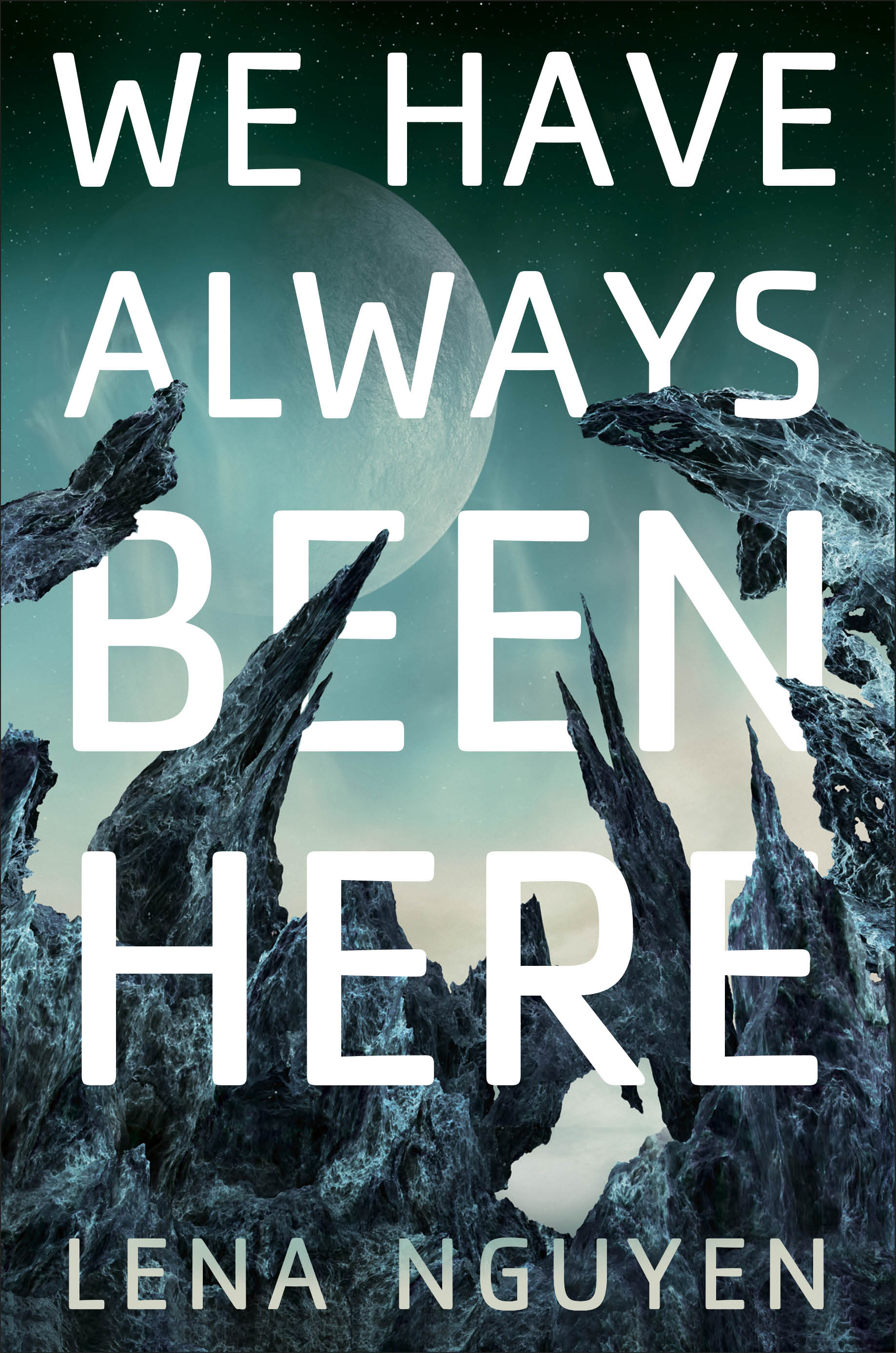 If you’ve followed my blog a while, you may have noticed I don’t read a lot of science fiction. I’m far from an aficionado, but I do have some favorites in the genre. Andy Weir comes to mind as someone who’s blown me away with his tightly-crafted and scientifically-convincing works. I love when someone can lay out for me a scientific future that really makes sense. It feels possible and concrete. It doesn’t really take much, as I would be rubbish at explaining the mechanics of anything involving space or space travel. I find it fascinating but know nothing. That’s sort of why I added galactic science fiction to my reading challenge this year, hoping to maybe find my next Project Hail Mary-esque obsession.
If you’ve followed my blog a while, you may have noticed I don’t read a lot of science fiction. I’m far from an aficionado, but I do have some favorites in the genre. Andy Weir comes to mind as someone who’s blown me away with his tightly-crafted and scientifically-convincing works. I love when someone can lay out for me a scientific future that really makes sense. It feels possible and concrete. It doesn’t really take much, as I would be rubbish at explaining the mechanics of anything involving space or space travel. I find it fascinating but know nothing. That’s sort of why I added galactic science fiction to my reading challenge this year, hoping to maybe find my next Project Hail Mary-esque obsession. Alka Joshi has this knack for creating memorable narratives. This novel, loosely based on the story of the artist, Amrita Sher-Gil, a celebrated female painter of the early 20th century, follows Sona, a nurse in a hospital in Bombay. When Sona meets the famous painter, Mira Novak, the fictionalized character drawn from the inspiration of Sher-Gil, Sona finds herself sent out on her own journey of self discovery that leads her out of India on a trek across some of the most famous and culturally rich cities in Europe.
Alka Joshi has this knack for creating memorable narratives. This novel, loosely based on the story of the artist, Amrita Sher-Gil, a celebrated female painter of the early 20th century, follows Sona, a nurse in a hospital in Bombay. When Sona meets the famous painter, Mira Novak, the fictionalized character drawn from the inspiration of Sher-Gil, Sona finds herself sent out on her own journey of self discovery that leads her out of India on a trek across some of the most famous and culturally rich cities in Europe. 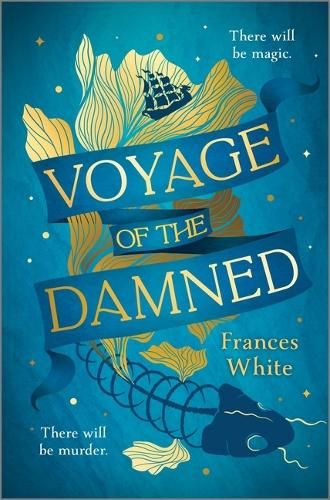 Boy, do I have mixed feelings about this one. Voyage of the Damned is the debut 2024 novel by Frances White, and her second novel is slated for a 2026 release. On her goodreads profile, this novel is described as a “magical gay murder cruise.” That is an incredibly apt surface description, but there is a lot more going on here.
Boy, do I have mixed feelings about this one. Voyage of the Damned is the debut 2024 novel by Frances White, and her second novel is slated for a 2026 release. On her goodreads profile, this novel is described as a “magical gay murder cruise.” That is an incredibly apt surface description, but there is a lot more going on here. How many authors can continuously churn out books that rake in well more than a 4 star average? Not many, but Fredrik Backman is one of them. He’s a prolific author, and it’s amazing he’s able to have the kind of quality to his writing considering the quantity of work he’s released. I have literally never read a Backman book I didn’t love. And I’ve never read one that didn’t make me cry, that’s for sure. This novel may very well be his best in overall depth of feeling. Like all his others, he crafts a story not with action sequences, thrills, and mysteries. He makes a work of art. Shades of people, light and dark, that all blend together to make something perfect and powerful.
How many authors can continuously churn out books that rake in well more than a 4 star average? Not many, but Fredrik Backman is one of them. He’s a prolific author, and it’s amazing he’s able to have the kind of quality to his writing considering the quantity of work he’s released. I have literally never read a Backman book I didn’t love. And I’ve never read one that didn’t make me cry, that’s for sure. This novel may very well be his best in overall depth of feeling. Like all his others, he crafts a story not with action sequences, thrills, and mysteries. He makes a work of art. Shades of people, light and dark, that all blend together to make something perfect and powerful. 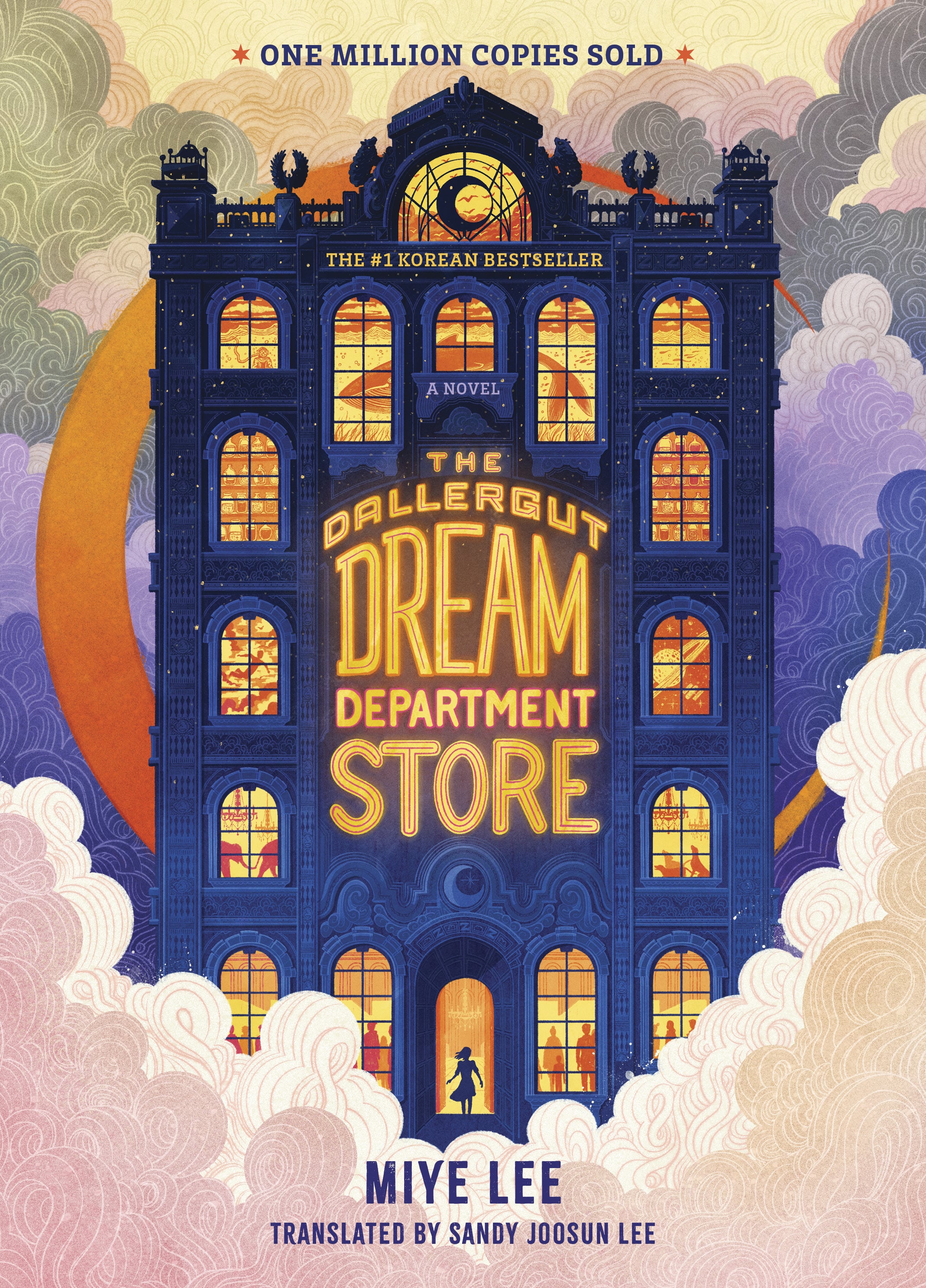 I can safely say this is unlike any other book I’ve read. For being billed an adult novel, it certainly has a very middle-grade children’s book vibe. The story is very sweet but simple and exudes magic from every angle. It imagines a lovely world in which an eager young woman goes to work in a department store that sells dreams. Each night every man, woman, child, and animal can visit and buy dreams of their choosing. They do not remember the purchase, but the dreams are experienced as designed. The cast of characters is as colorful as the cover art, and the concept is extremely compelling.
I can safely say this is unlike any other book I’ve read. For being billed an adult novel, it certainly has a very middle-grade children’s book vibe. The story is very sweet but simple and exudes magic from every angle. It imagines a lovely world in which an eager young woman goes to work in a department store that sells dreams. Each night every man, woman, child, and animal can visit and buy dreams of their choosing. They do not remember the purchase, but the dreams are experienced as designed. The cast of characters is as colorful as the cover art, and the concept is extremely compelling. 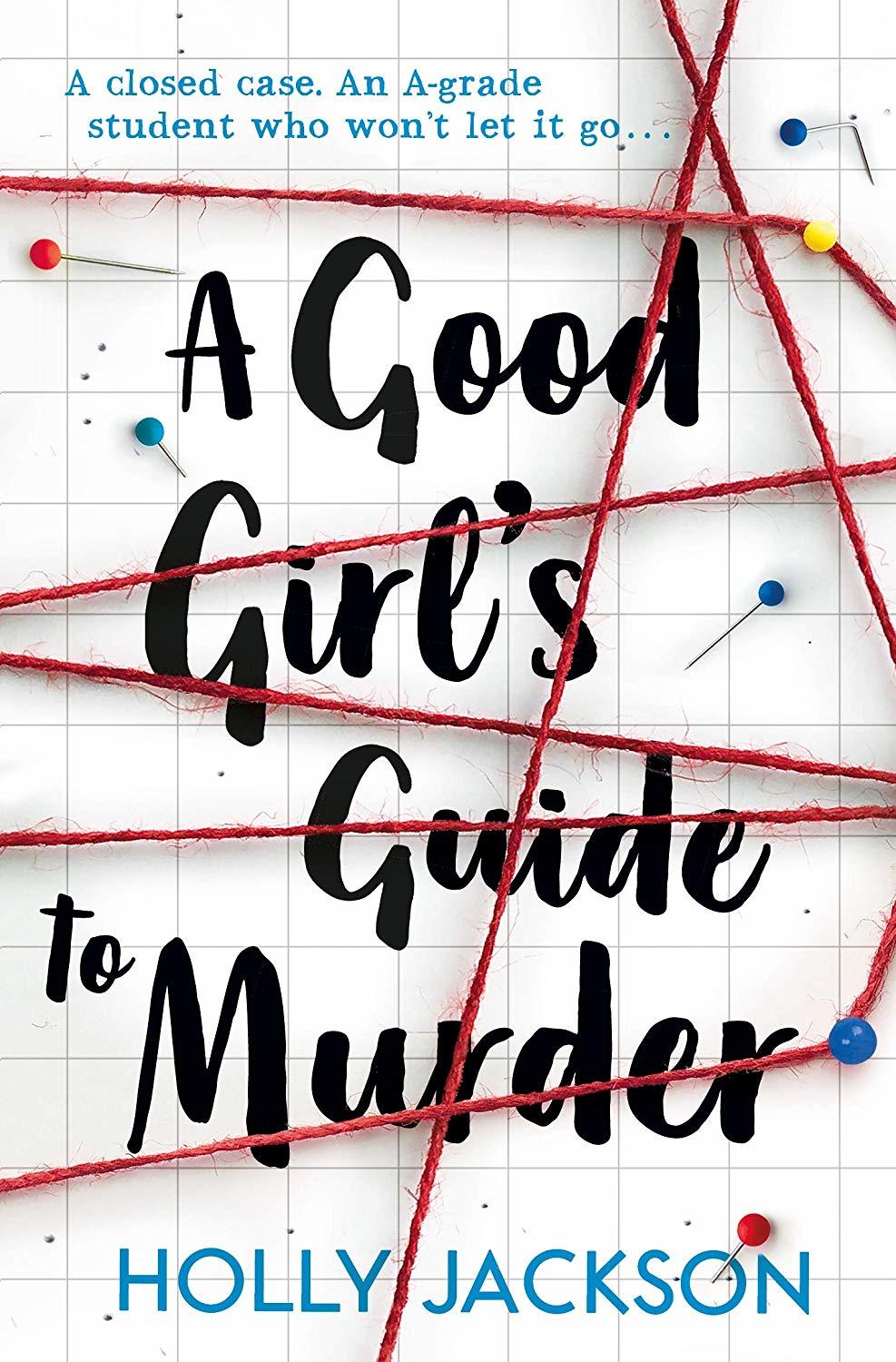 This title is probably new to no one, considering the successful BBC adaptation that aired in 2024. Drawing subtly from the real-life murder case of Hae Min Lee, this binge-worthy young adult true crime novel keeps readers on their toes to the very end. And though it seems to be partly inspired by a real case, that shouldn’t sway the reader into thinking they’ll know what happens. Aside from the “girlfriend possibly slain by boyfriend” and “racially motivated witch hunt” aspects, the narrative takes its own twists and turns.
This title is probably new to no one, considering the successful BBC adaptation that aired in 2024. Drawing subtly from the real-life murder case of Hae Min Lee, this binge-worthy young adult true crime novel keeps readers on their toes to the very end. And though it seems to be partly inspired by a real case, that shouldn’t sway the reader into thinking they’ll know what happens. Aside from the “girlfriend possibly slain by boyfriend” and “racially motivated witch hunt” aspects, the narrative takes its own twists and turns.